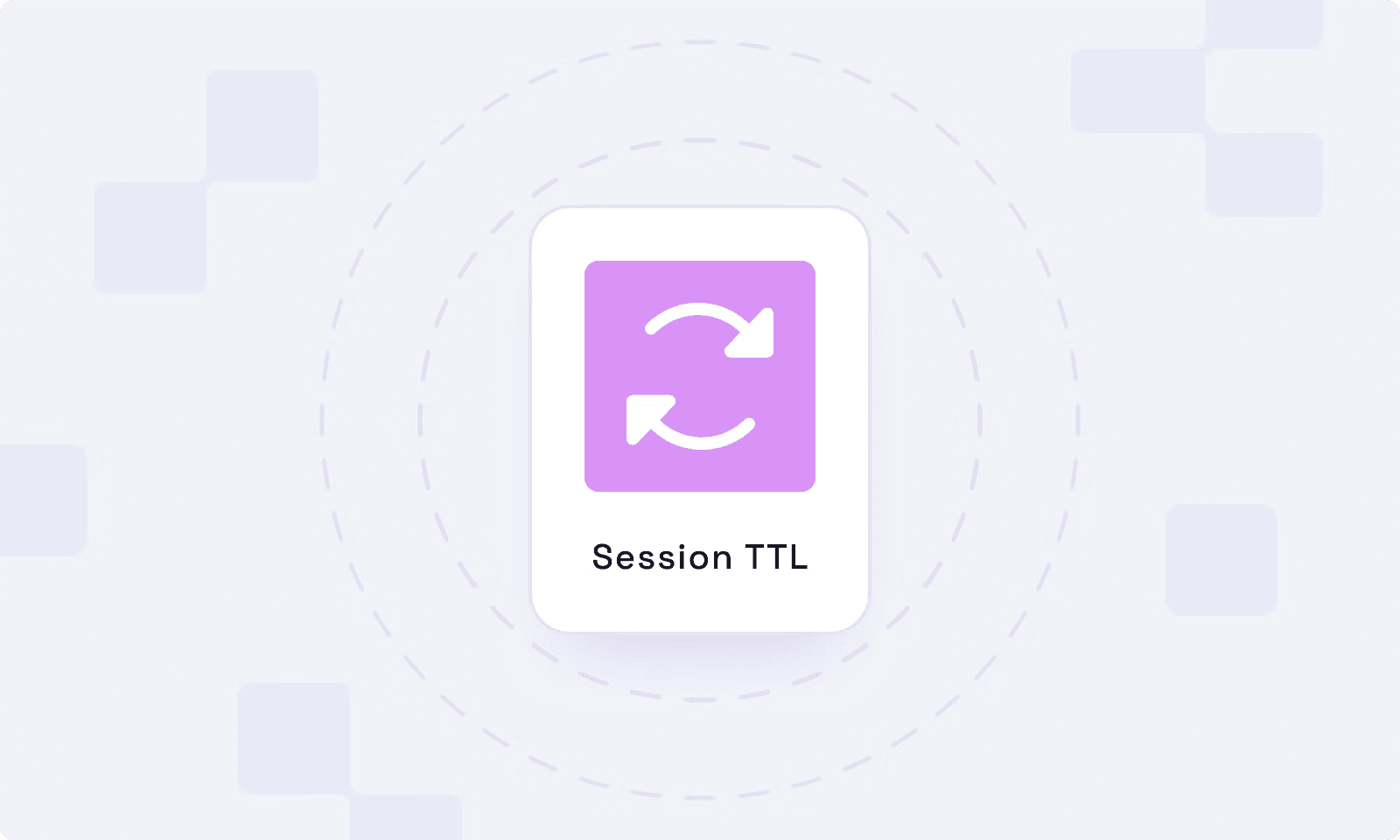Announcing Residential Proxy Session TTLs

We are pleased to announce the launch of Session TTLs (Time to Live) for our residential proxy network. This feature allows customers to maintain the same IP address for a specific time duration by simply adding a TTL parameter to the proxy username.
With Session TTLs, you now have control over how long a residential IP is held before being rotated out and all this logic is offloaded to our backconnect network.
What Does This Mean for You?
Session TTLs provide:
- Granularity: Define how long your sessions last, from 1 minute to 7 days.
- Simplicity: No more man-in-the-middle applications or custom rotation tools. We will handle rotation automatically.
- Flexibility: Combine session IDs with TTLs for both persistence and predictable expiry.
How to Configure Session TTLs
You can specify the TTL directly in the username field of your proxy credentials. The format is:
Where:
- {username} is your account username.
- _s_{sessionID} is your chosen session ID (required).
- _ttl_{number}{unit} defines the duration of the session.
- {unit} can be m for minutes, h for hours, or d for days.
- {password} is your account password.
The minimum TTL is 1 minute and the maximum TTL is 7 days but if no TTL is provided, we will attempt to hold the IP for as long as possible (up to 7 days).
Importantly, Residential nodes cannot be guaranteed to remain online for the entire TTL. If the device providing the IP goes offline, the IP will rotate even if the TTL has not yet expired.
Example with CURL
In this example:
- Session ID = testSession
- TTL = 2 hours
After 2 hours, the IP will rotate automatically, or earlier if the residential node goes offline.
Why This Matters
Previously, customers had to handle IP rotation themselves, either by tracking timers locally or by building middleware to force rotation. We endeavor to provide our customers with the best UX in the marketplace and it didn’t seem right that customers often had to handle this complexity on their or were limited by using our proxies in client software which didn’t handle this kind of rotation logic but now, with Session TTLs, our proxy network enforces rotation schedules for you.
Whether you need stability (holding an IP for hours or days) or agility (rotating every few minutes), Session TTLs give you that flexibility natively.
Coming Soon
Later this month, Session TTL configuration will also be available directly in the Dashboard Proxy Generator. This will make it even easier to generate fully-formed proxy strings without needing to construct them manually or with code.
